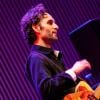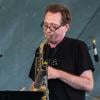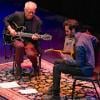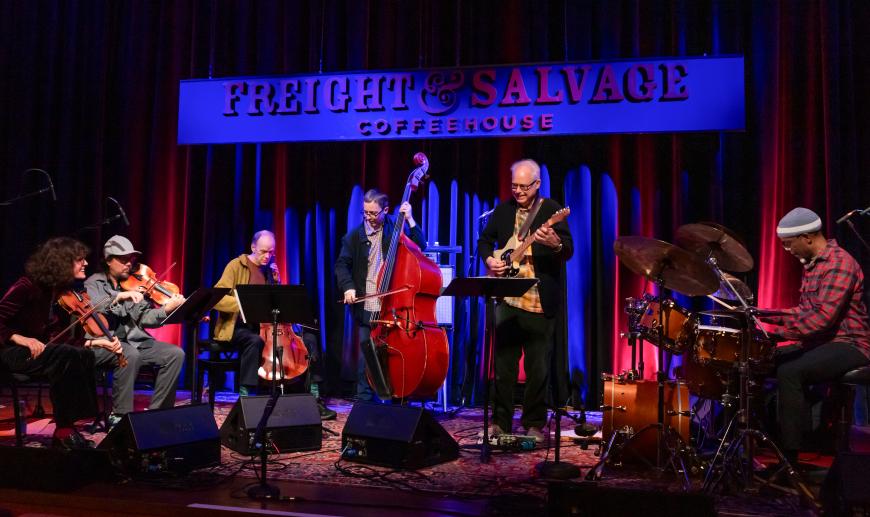
Sometimes it feels like Bill Frisell really wants to be making movies. Who doesn’t? The age of omnipresent iPhones has turned just about everyone into an auteur, but it’s a rare gift indeed to evoke an emotionally roiling world of shadowed intrigue, dogged pursuit, melancholic reminiscence, epiphanic revelation, and obsessive brooding over an object of unobtainable desire — all with a jazz chamber ensemble.
On Sunday, for the concluding performance of his four-night “In My Dreams” residency at Berkeley’s Freight & Salvage, which featured a different lineup each night, the guitarist and composer regrouped with the three string players who’ve been key, if intermittent, collaborators of his for some two decades: cellist Hank Roberts, violist Eyvind Kang, and violinist Jenny Scheinman. Frisell has written a wide array of music for the three musicians, including his 2005 quartet album Richter 858, inspired by the work of German painter Gerhard Richter. But Sunday’s concert premiered new music Frisell composed for the first encounter between the three string players and his working trio with Hayward-raised bassist Thomas Morgan and drummer Rudy Royston.
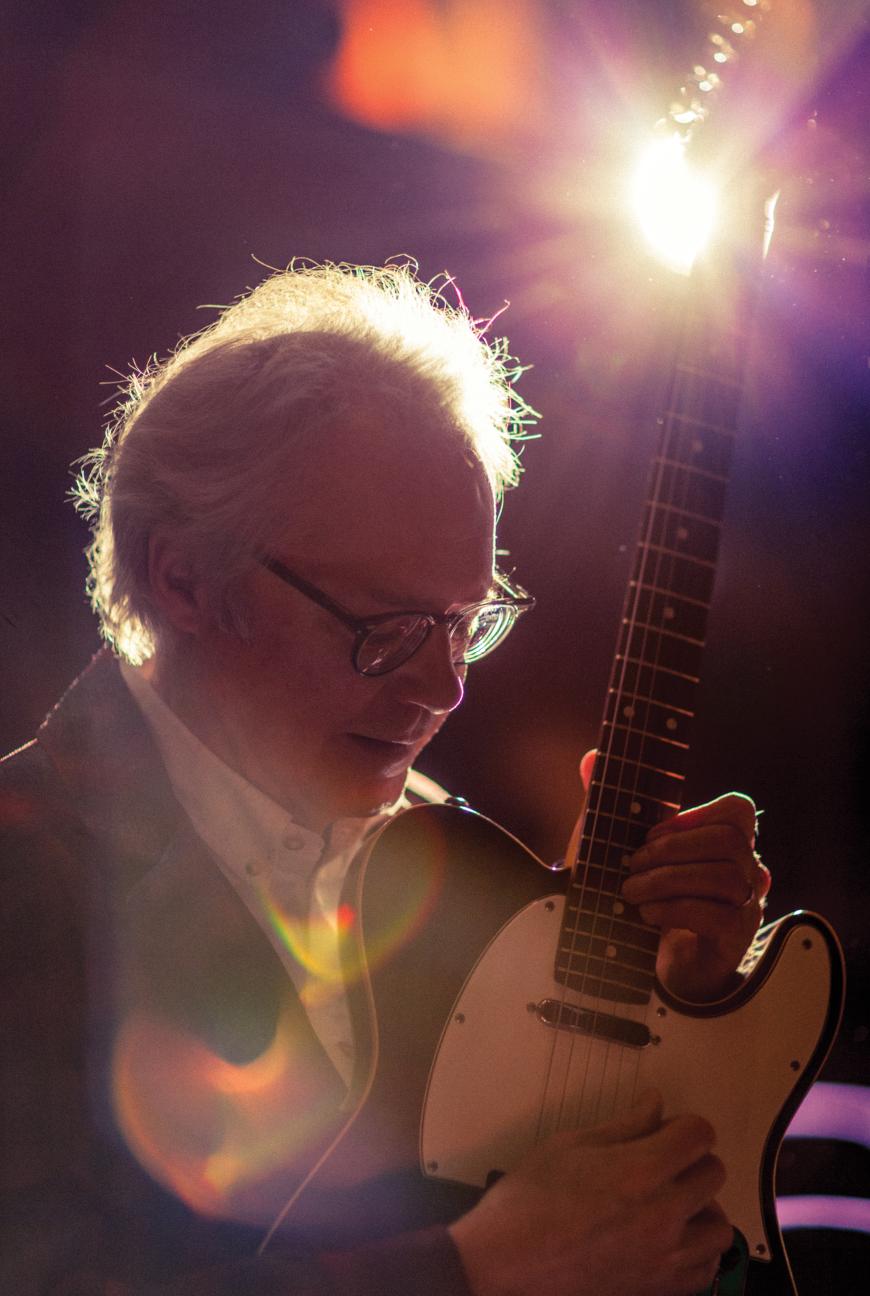
Arrayed across the stage left to right — violin, viola, cello, bass, guitar, and drums — the group was essentially five strings and trap set, with Royston’s subtle, texturally acute drum work, often delivered with the caress of brushes, serving as the scaffolding. Played without pauses for applause, the music unfolded in a seamless flow of about nine pieces, though several themes resurfaced in different guises. Opening with a spacious, tentative passage, the first movement gradually coalesced into a deliberate repeating five-note phrase.
The second movement hinted at the ascending opening line of Duke Ellington’s “In a Sentimental Mood” before quickly turning into a trademark folksy Americana soundscape. Around the third movement, Frisell’s cinematic sensibility fully took over as Scheinman bowed a theme in parallel to Roberts’s and Kang’s pizzicato passages, as if two related sequences were unfolding on a split screen.
Frisell was at his most expressive in territory suggesting romantic obsession or loss, such as a theme that could have been lifted from the score for Alfred Hitchcock’s Vertigo or Rebecca. Rather than taking solos, each musician had several opportunities to ease into the foreground, a space that Kang occupied with particularly beautiful intensity. In his hands, the viola sounded like an otherworldly entity. Frisell’s guitar work, which mostly eschewed pedals and effects, kept a steady conversation going with the strings, answering riffs, suggesting new directions, and emphasizing the vivid moods with earnest exposition and ringing harmonics.
As the concert moved toward its conclusion, the group settled into a rolling mid-tempo groove so pleasing it almost hurt when it came to an end. Locomotive chugging surged into a long passage for the unison strings, and suddenly, but not without warning, the concert arrived at its destination. Could the music, as presented, use some editing? Yes. Would some pieces be well served by expansion? Again, yes. What’s certain is that Frisell’s love of writing for these three string players, and the ease with which they meshed with his trio, promises wonders (and maybe film scores) to come.
Called back to the stage by an extended ovation, the group performed an enthralling version of Thelonious Monk’s “Skippy,” one of the maestro’s densest pieces, played here with loose but exquisite precision and sounding like a man with a fez falling up a staircase and landing on his feet. The contrast with what came before was extreme, like stepping from a theater screening an Otto Preminger film into a Buster Keaton short.


